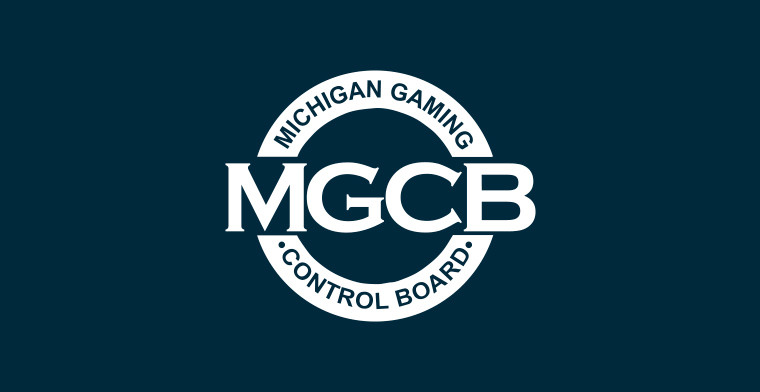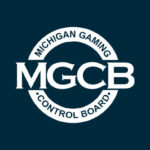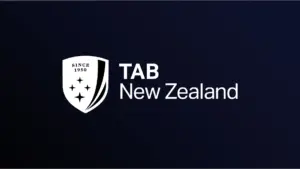Michigan Gaming Control Board Intensifies Crackdown on Illegal Offshore Casinos

Gambling involves financial risk and may not be suitable for all individuals. Gambling industry experts create our content for informational purposes only. We may receive commissions from affiliate links at no cost to you, but our reviews remain independent and unbiased. We're committed to responsible gambling practices and transparent recommendations. About Us

Michigan’s regulated online gambling market is firing back against unlicensed competition as the Michigan Gaming Control Board (MGCB) executes an aggressive enforcement campaign targeting illegal offshore casino operators. Since February 2025, the regulatory body has issued 15 cease-and-desist orders to unauthorized gambling websites, backed by substantial penalties including potential 10-year prison terms and $100,000 fines for operators violating state law.
This enforcement surge reflects Michigan’s determination to protect both consumers and tax revenue three years after launching its regulated online gambling market. The state’s zero-tolerance approach has already resulted in $1.5 million in fines and three pending felony charges against offshore operators continuing to target Michigan residents despite explicit prohibitions under the Lawful Internet Gaming Act.
Key Takeaways
- Escalating Enforcement: Michigan has issued 15 cease-and-desist orders to illegal offshore casinos since February 2025.
- Substantial Penalties: Operators face up to 10-year prison terms and $100,000 fines under state gambling laws.
- Recent Actions: BetWhale Casino, Black Lotus Casino, Lucky Tiger Casino, and Rich Palms Casino are among the Curaçao-based targets.
- Financial Impact: The crackdown has resulted in $1.5 million in fines with three felony charges pending.
- Consumer Protection Focus: Investigations found unreliable payouts with 10x playthrough requirements and significant data security vulnerabilities.
- Market Context: Michigan’s licensed online gambling market is limited to 15 authorized platforms including DraftKings and BetMGM.
Comprehensive Enforcement Strategy
The MGCB’s enforcement strategy combines regulatory actions, technical countermeasures, and consumer education initiatives to eliminate illegal offshore gambling access for Michigan residents systematically.
March 2025 Actions
In March 2025, the MGCB ordered five prominent offshore operators to halt Michigan-facing operations immediately: BetWhale Casino, Black Lotus Casino, Vegas Crest Casino, Lucky Draw Casino, and Drake Casino. Each site received formal cease-and-desist notices demanding the immediate blocking of Michigan IP addresses and withdrawal of all Michigan-targeted advertising.
“These operators knowingly violated Michigan law by offering gambling services without a license,” explained Henry Williams, MGCB Executive Director, during a press conference announcing the actions. “We have zero tolerance for illegal gambling. These operators jeopardize consumer safety and undermine our regulated market.”
The March enforcement actions quickly escalated beyond administrative measures. Within weeks, the MGCB referred three cases to state prosecutors after the operators failed to comply with initial orders. These referrals have resulted in felony charges under the Michigan Penal Code, which classifies unlicensed gambling promotion as a felony punishable by up to 10 years imprisonment and $100,000 in fines.
April 2025 Expansion
Building on March’s momentum, the MGCB expanded its enforcement scope in April 2025, targeting Lucky Tiger Casino and Rich Palms Casino—both operating under Curaçao gaming licenses but without Michigan authorization. These actions were accompanied by coordinated efforts with payment processors to block transactions to the flagged sites.
“The April enforcement phase specifically targets payment channels that enable illegal gambling,” Williams noted in the MGCB’s April enforcement announcement. “By disrupting financial flows, we can effectively neutralize offshore operators even when they attempt to evade direct regulatory action.”
This multi-pronged approach has proven effective, with preliminary data suggesting a 35% reduction in Michigan traffic to unlicensed gambling sites since the enforcement campaign began. The MGCB reports it is currently investigating an additional 25 unauthorized operators, with further enforcement actions expected throughout 2025.
Legal Framework and Authority
Michigan’s enforcement actions rest on a comprehensive legal framework established through multiple legislative acts:
Lawful Internet Gaming Act (LIGA)
Enacted in 2019 and implemented in January 2021, this legislation created Michigan’s regulated online casino framework. The law explicitly limits online gambling operation to entities holding proper licensing through the MGCB, currently restricted to 15 platform providers partnered with the state’s commercial and tribal casinos.
LIGA establishes clear prohibitions against unauthorized operators and empowers the MGCB to take action against violators. The legislation specifically addresses offshore operators, granting the MGCB authority to issue cease-and-desist orders and seek injunctive relief against unauthorized gambling websites.
Michigan Penal Code
Complementing LIGA, Michigan’s Penal Code classifies the operation of unlicensed gambling as a felony offense. This criminal statute provides prosecutors with significant leverage, including potential extradition requests for operators based in foreign jurisdictions who knowingly target Michigan residents.
“The criminal provisions of our gambling laws have real teeth,” explained Michigan Attorney General Dana Nessel in a statement supporting the MGCB’s enforcement campaign. “Operators who believe they can hide behind offshore jurisdictions are mistaken—we have established cooperative relationships with multiple international authorities specifically to address illegal gambling.”
Federal Wire Act Coordination
While operating under state authority, the MGCB has coordinated its enforcement actions with federal agencies, including the Department of Justice. This coordination leverages the federal Wire Act to target payment processing and telecommunications services supporting illegal gambling operations.
“Our state-federal coordination creates a formidable enforcement framework,” noted Williams. “When offshore operators evade state-level enforcement, federal tools often provide the necessary jurisdiction to disrupt their operations effectively.”
Consumer Protection Focus
While regulatory compliance drives the enforcement campaign, the MGCB emphasizes consumer protection as its primary motivation. Investigations into targeted offshore operators revealed numerous concerning practices that put Michigan residents at risk:
Unreliable Payment Practices
MGCB investigations documented systematic payout problems across the targeted sites, including:
- Excessive Withdrawal Requirements: Most offshore operators imposed 10x playthrough requirements before allowing withdrawals, effectively trapping player deposits.
- Arbitrary Withdrawal Denials: Documentation showed multiple instances where offshore casinos denied withdrawals by claiming violations of vague terms and conditions.
- Extended Processing Delays: Unlike Michigan’s regulated sites that process withdrawals within 24-72 hours, offshore operators routinely delayed payments for weeks without explanation.
A consumer survey conducted by the MGCB found that 12% of Michigan residents who had used offshore gambling sites reported payment issues, with average disputed amounts exceeding $1,200 per affected player.
“Licensed operators must meet strict financial requirements that protect player funds,” explained Williams. “Offshore sites operate without these safeguards, creating significant risk for consumers who may never receive their winnings.”
Data Security Vulnerabilities
Technical analysis of the targeted offshore sites revealed concerning security vulnerabilities, including:
- Inadequate Encryption: Several sites operated without proper SSL certification or with expired security certificates.
- Minimal Data Protection: Player accounts lacked basic security features like two-factor authentication.
- Questionable Game Integrity: Unlike Michigan’s regulated market where gaming software undergoes rigorous testing, offshore sites operated without verified random number generators or independent auditing.
The MGCB’s investigation documented several data breaches affecting offshore gambling sites in 2024, exposing Michigan customers’ personal and financial information.
“When players use offshore sites, they’re not just risking their deposits,” cautioned Sandra Miller, MGCB’s Deputy Director for Licensing. “They’re potentially exposing their identity and financial data to operators with minimal security protocols and no accountability to Michigan authorities.”
Responsible Gambling Deficiencies
The enforcement actions also highlighted significant responsible gambling shortcomings among offshore operators:
- Absence of Self-Exclusion Options: Unlike Michigan’s regulated sites that offer robust self-exclusion programs, offshore operators provided minimal responsible gambling tools.
- Aggressive Marketing to Problem Gamblers: Evidence showed offshore sites specifically targeted advertisements to players who had self-excluded from Michigan’s regulated platforms.
- No Age Verification: While Michigan’s licensed operators employ strict age verification, offshore sites implemented minimal checks that could be easily circumvented by minors.
“The responsible gambling safeguards built into our regulated market are entirely absent from these illegal operations,” noted Miller. “This creates particular risks for vulnerable players who may struggle with problem gambling behaviors.”
Market Impact and Industry Response
The enforcement campaign occurs against the backdrop of Michigan’s maturing regulated online gambling market, which has generated over $2 billion in revenue since its January 2021 launch. Licensed operators have welcomed the crackdown while highlighting the competitive disadvantages they face against unregulated competition.
Regulated Market Performance
Michigan’s regulated online gaming market currently includes 15 licensed platforms, including major brands like DraftKings, BetMGM, FanDuel, and BetRivers, along with tribal casino-affiliated operations. These platforms operate under strict regulatory requirements, including:
- Comprehensive KYC verification
- Segregated player fund accounts
- Regular technical audits
- Substantial tax obligations (20-28% depending on revenue levels)
- Mandatory responsible gambling tools
- Data security requirements
Despite these regulatory requirements, Michigan’s regulated market has shown robust performance, with Q1 2025 online casino revenue reaching $474 million—up 18% year-over-year. However, industry analysts estimate offshore operators may still capture 15-20% of Michigan’s total online gambling activity.
Licensed Operator Perspectives
Michigan’s licensed operators have strongly supported the enforcement campaign while emphasizing the uneven competitive landscape created by illegal operations.
“Offshore operators gain unfair advantages by avoiding taxes, regulatory compliance costs, and consumer protection requirements,” explained Richard Kalm, Executive Director of the Michigan Gaming Association, representing licensed operators. “This enforcement campaign helps level the playing field while protecting Michigan consumers and tax revenue.”
BetMGM, Michigan’s market leader with approximately 30% market share, issued a statement supporting the MGCB’s actions: “We invest millions in compliance, responsible gambling programs, and security to meet Michigan’s high standards. The MGCB’s enforcement ensures these investments translate to consumer protection rather than competitive disadvantages.”
Payment Processor Cooperation
A critical component of the enforcement strategy involves cooperation from payment processors and financial institutions. The MGCB has secured commitments from major credit card companies, payment platforms, and banks to block transactions to identified illegal gambling sites.
“Payment processor cooperation dramatically increases enforcement effectiveness,” noted Williams. “When players can’t fund accounts or receive payouts, illegal operators lose their Michigan customer base regardless of their response to regulatory actions.”
Major processors including Visa, Mastercard, and PayPal have implemented enhanced transaction monitoring specifically targeting unauthorized gambling operators. These measures complement the MGCB’s direct enforcement actions by creating multiple barriers to illegal gambling access.
Technical Enforcement Mechanisms
Beyond regulatory and financial measures, the MGCB has implemented technical enforcement tools to disrupt offshore operators:
IP Blocking Requirements
Internet service providers operating in Michigan must now block access to designated illegal gambling domains under orders issued through the state attorney general’s office. This technical measure prevents Michigan residents from accessing identified illegal gambling sites, regardless of operator compliance with cease-and-desist orders.
“IP blocking creates an immediate technical barrier while our other enforcement actions proceed,” explained Williams. “While sophisticated users might circumvent these restrictions through VPNs, they substantially reduce casual access to illegal sites.”
The MGCB maintains a continuously updated blacklist of prohibited gambling domains, with ISPs required to implement blocks within 72 hours of notification. This rapid-response system allows regulators to quickly neutralize new illegal operators targeting Michigan residents.
Search Engine Delisting
Complementing direct access restrictions, the MGCB has secured cooperation from major search engines to delist illegal gambling operators from Michigan search results. This reduces the discoverability of offshore sites and decreases their organic traffic from Michigan-based searches.
Google, which processes approximately 90% of Michigan’s search traffic, now excludes identified illegal gambling operators from results displayed to Michigan IP addresses. This measure significantly impacts offshore operators’ ability to acquire new customers through search channels.
Advertising Platform Restrictions
Major advertising platforms, including Google Ads and Facebook, have implemented enhanced restrictions preventing unauthorized gambling operators from targeting Michigan residents. These platforms now require verification of MGCB licensing before approving gambling-related advertisements displayed to Michigan audiences.
“Advertising restrictions cut off a primary customer acquisition channel for illegal operators,” noted Miller. “Combined with payment blocking and IP restrictions, these measures create a comprehensive enforcement framework that attacks illegal gambling from multiple angles.”
Consumer Education Campaign
Recognizing that enforcement alone cannot eliminate illegal gambling, the MGCB has launched a complementary consumer education campaign highlighting the risks of offshore sites. This $1.2 million initiative includes:
- Television and radio public service announcements
- Digital advertising targeting users searching for offshore casino terms
- Partnerships with Michigan universities and professional sports teams
- Educational materials distributed through licensed casinos
The campaign emphasizes the reliability, security, and consumer protection advantages of Michigan’s regulated market while detailing specific risks associated with offshore alternatives.
“Many consumers don’t understand the fundamental differences between licensed and unlicensed gambling sites,” explained Williams. “Our education campaign aims to make these distinctions clear, helping players make informed choices that protect their interests.”
Early campaign metrics show promising results, with consumer awareness of offshore gambling risks increasing 22% among surveyed Michigan residents since the initiative launched in March 2025.
Future Enforcement Directions
Looking ahead, the MGCB outlines several planned expansions to its enforcement strategy:
Enhanced International Cooperation
The MGCB is establishing formal information-sharing agreements with gambling authorities in key offshore jurisdictions, including Malta, Isle of Man, and Curaçao. These relationships aim to exert regulatory pressure on illegal operators from multiple jurisdictions simultaneously.
“International regulatory cooperation is essential for addressing operators based in foreign jurisdictions,” noted Williams. “While offshore havens have historically provided shelter for unauthorized operators, increasing regulatory collaboration is closing these loopholes.”
The MGCB has already secured cooperation from Curaçao’s newly established gaming authority, which has committed to reviewing its licensees’ compliance with international targeting restrictions following Michigan’s enforcement actions.
Affiliate Marketing Focus
The next phase of enforcement will target affiliate marketing networks that drive traffic to illegal gambling operators. The MGCB plans to issue cease-and-desist orders to affiliates promoting offshore casinos to Michigan residents, treating them as accomplices to illegal gambling operations.
“Affiliate marketers are the customer acquisition pipeline for many offshore operators,” explained Miller. “By disrupting this channel, we can significantly reduce illegal operators’ Michigan market presence regardless of their direct response to enforcement.”
This approach targets a vulnerable link in the offshore operational chain, as affiliates typically maintain U.S. business presences that create direct jurisdiction for Michigan authorities.
Expanded Site Identification Resources
To enhance detection of unauthorized operators, the MGCB has expanded its technical monitoring capacity, implementing automated scanning systems that identify gambling websites accepting Michigan connections. This technology enables more comprehensive market surveillance and faster response to emerging threats.
“Our enhanced monitoring systems can now detect new offshore sites targeting Michigan within hours of their launch,” noted Williams. “This capability allows us to take immediate action rather than waiting for consumer complaints or manually identifying unauthorized operators.”
The system combines AI-driven web crawling with transaction monitoring to create comprehensive visibility into the offshore gambling ecosystem targeting Michigan residents.
Key Takeaways for Industry Stakeholders
As Michigan’s enforcement campaign continues, several important considerations emerge for different stakeholders in the online gambling ecosystem:
For Michigan Residents
- Verify Licensing: Before creating accounts, players should confirm operator licensing through the MGCB’s official website.
- Report Violations: The MGCB has established a dedicated reporting channel for illegal gambling operations targeting Michigan residents.
- Understand Risks: Players using offshore sites lack consumer protections, secure payment processing, and legal recourse for disputes.
For Licensed Operators
- Differentiate Based on Legitimacy: Marketing strategies should emphasize the security and reliability advantages of regulated gambling.
- Support Enforcement: Operators benefit from sharing intelligence about offshore competitors with regulators.
- Maintain Standards: The contrast between regulated and unregulated operators becomes most apparent when licensed platforms maintain exemplary compliance standards.
For Payment Processors
- Enhanced Due Diligence: Financial institutions should implement robust merchant category monitoring to identify unauthorized gambling transactions.
- Coordinated Blocking: Comprehensive payment blocking requires coordination across the payment ecosystem, including banks, card networks, and digital wallets.
- Customer Education: Payment providers should educate customers about the risks of offshore gambling transactions.
“Michigan’s approach to illegal gambling enforcement sets a potential model for other regulated U.S. markets,” concluded Henry Williams. “By combining regulatory action, technical measures, financial disruption, and consumer education, we’re creating a comprehensive framework that effectively addresses offshore gambling while strengthening our regulated market.”
The MGCB’s escalating enforcement campaign represents a significant evolution in the U.S. regulated gambling market’s approach to offshore competition. As results continue to demonstrate effectiveness, other states are closely watching Michigan’s model for potential adaptation to their jurisdictions—potentially signaling a broader national shift toward more aggressive offshore gambling enforcement.
References
- CBS News Detroit. (2025). “Michigan Orders 5 Unlicensed Gambling Websites to Stop Operating.”
- Action Network. (2025). “Michigan Gets Serious with Offshore Casino Crackdown.”
- Casino News Daily. (2025). “Michigan Cracks Down on Offshore Casinos Operating Illegally.”
- iGaming Business. (2025). “Michigan Illegal Gambling Websites.”



 Justin Ward
Justin Ward 














